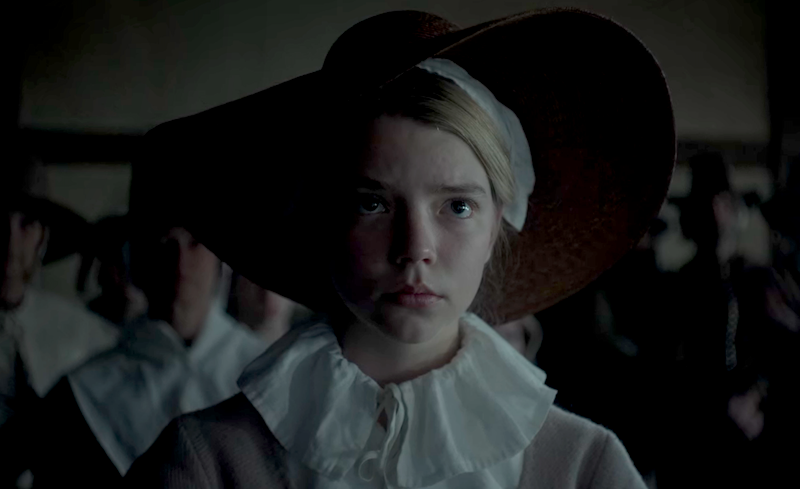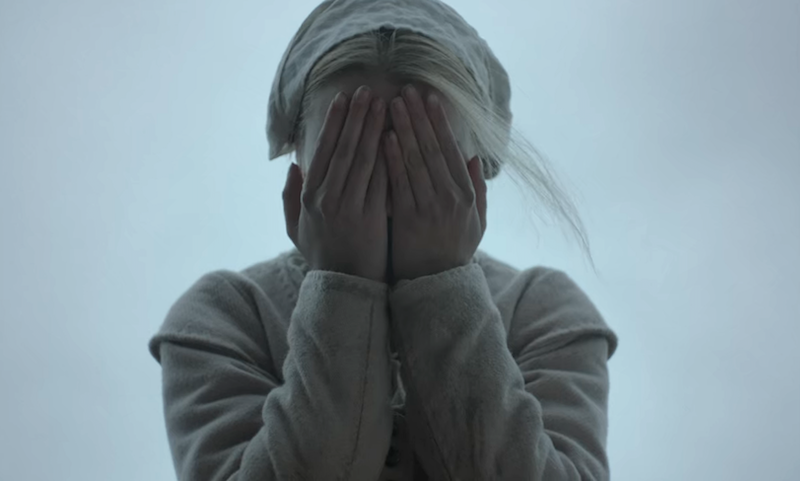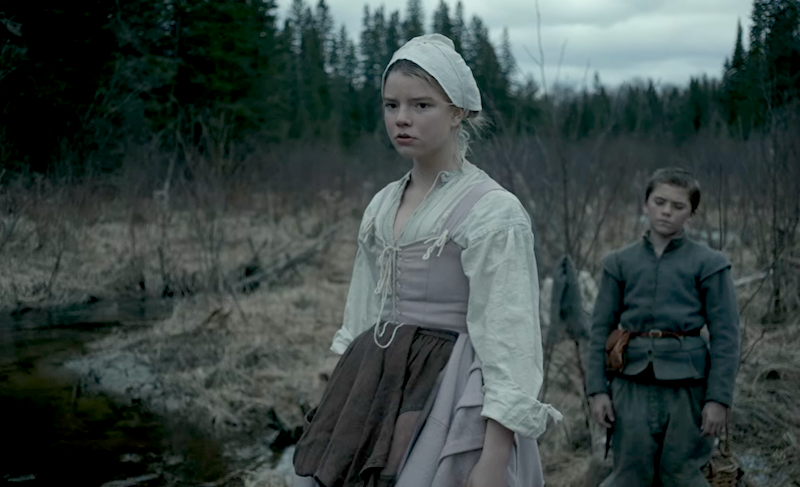by Jason Adams

There is model beauty, and then there is movie star beauty, and they overlap less than you'd imagine. The thing about movie stars is they've got faces that are interesting more than they are perfect, and once our interest has found them their so-called "imperfect" curiosities -- Michelle Pfeiffer's mouth, Daniel Day-Lewis' nose, to be all Age of Innocence example about it -- become in turn cache. Nobody was walking into a plastic surgeon's office asking for Michelle Pfeiffer's lips before 1982 but you can be sure there was a spike in such utterances once "Cool Rider" had come and gone.
I begin with this to say I knew the second I saw Anya Taylor-Joy's eyes that a star was being born right in front of me. I might have actually missed several important details plot-wise watching Robert Egger's The Witch that first time in 2015, so lost was I in trying, and failing, to find footing astride those eyes' ginormous bedevilry. The film opens on them... perched as they're wont on the the two separate sides of her face, anime teardrops wandering in opposite directions. You wanna live deliciously you stare into those eyeballs for an hour and a half, that's my recipe.
Taylor-Joy's Thomasin is still a mere babe when we meet her, swaddled under infantilizing bonnet and collar, watching (and watching and watching) on helplessly as her father (Ralph Ineson, with a voice like a pocketful full of nickels) tells the Puritans they're not pure enough for him, and that he and his family will gladly go wander into the wilderness thank you very much. It's clear from first comma, Taylor-Joy's eyes dripping down her cheeks, that this is a righteous bad decision for everybody -- what a gift is her watchful countenance to this Eggers experience!

Every bad decision after, and there are many, comes smacking up against those eyes -- Thomasin playing deadly peekaboo with the baby is merely premonition for the horrors that lay ahead. The film becomes a war of who can keep their big eyes open the longest -- Thomasin blinks and all spoils as the forest hare, eyes as black as rotten apples, never ever turns it watchfulness away. The woods teem with watching, and Thomasin watches back until her sockets half-split. In the night, in the dark, a girl can only see so far, so long. Without asking for a little extra help anyway. A torch, some inner fire, with which to light the way.
Thomasin's dark path was probably etched into the forest floor before she even got there, but there's a real specific moment in her story where her ability to see, never un-see, seems to take that first unwieldy step towards adulthood, no walking it back -- by the river as she catches sweet Caleb (Harvey Scrimshaw), baby brother, with his own eyes dancing down her bosom. Thomasin sees and reacts with innocence, playfulness, a play-act that quickly spirals out of control as if the hormones in the air, vibrating unnatural chords thanks to isolation and fundamentalism, have heightened the atmosphere. This stream-bed runs thick and dark with thoughts. And before you can cry "which witch is which" Thomasin has tackled little sister Mercy and confessed to all kinds of wickedness. A ruse that will be all of their soon undoing, one by unfortunate one, to the last girl standing.
Taylor-Joy escalates this scene with exquisite precision, displaying a coquette girlishness that quick snaps rabid like a trap. Thomasin's first intention is no doubt to deflect from Caleb's bland impropriety, but she quickly becomes lost in the mania she's making for herself. This is the film in miniature -- Thomasin's excitable shrug off of the bullshit story she's stuck in and a bolder re-telling of it for herself. This time with bigger action and thrills, some hard to even imagine personal volition. A signature in a book and a walk among the trees. If she's got to watch her life stretch miles in front of her she, and her eyes, are going to see what they will of it. A nd there are so many possibly delicious sights to see.
